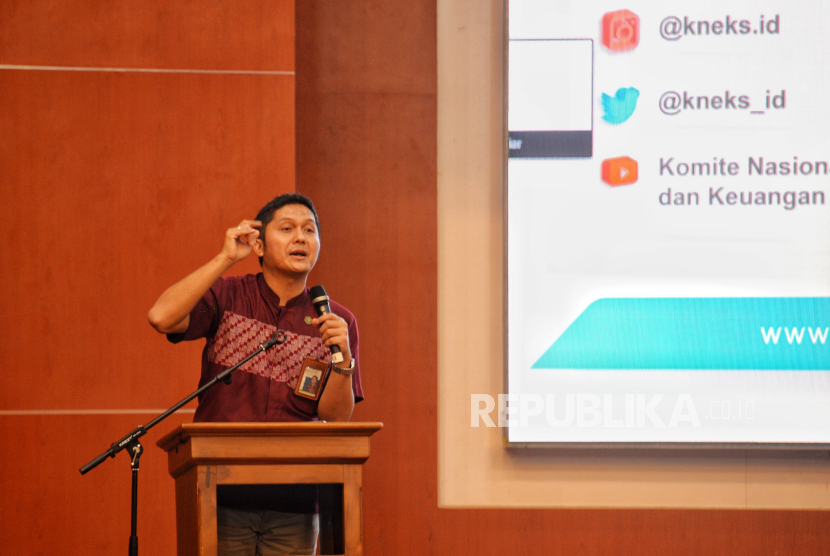REPUBLIKA.CO.ID, JAKARTA — The Islamic finance industry faces serious challenges in providing competent human resources (HR). The need for a trained workforce reaches 11,000 people per year, while the number of graduates from new colleges is about 4,000. That is, there is a deficit of about 7,000 professionals every year.
This condition was stated by Director of Sharia Ecosystem Infrastructure of the National Committee of Sharia Economy and Finance (KNEKS) Sutan Emir Hidayat, in a discussion forum held online by Mindanao State University Maguindanao. He highlighted that this gap forced the industry to recruit labour from conventional banks and then retrain them.
“According to research conducted by Rifqi Muhammad and Peni Nugraheni in 2022, in Indonesia, the industry needs about eleven thousand trained workers every year, but currently only four thousand graduates are available to university graduates. This forced companies to recruit conventional bankers and retrain them. It is an unsustainable temporary solution,” he was quoted as saying Sunday (6/7/2025).
The need for sharia financial HR is not only a matter of quantity, but also of quality. Therefore, the educational curriculum is judged to be geared towards addressing the needs of the industry directly. One approach being encouraged is Outcome-Based Education (OBE), with a structure focused on the learning achievements of graduates.
“The Outcome-Based Education (OBE) approach, which focuses on achieving Graduate Learning Outcomes (GLOs) or in Indonesia known as Graduate Learning Outcomes (CPL), determines the competencies of graduates from the beginning—encompassing knowledge, skills, and attitudes—each course is designed to contribute in a targeted manner to the expected graduate profile,” explains Sutan.
He added that curriculum development cannot be released from industry research and collaboration. Through the integration of capstone projects, real case studies, and cooperation with industry players, students not only understand the theory but also contribute to relevant innovations.
“By integrating capstone projects, industry collaborations, and real case studies, students not only master theory but also contribute to industry innovation,” he emphasizes.
Efforts to improve the Islamic financial education curriculum became a strategic step in promoting the sustainable growth of the industry. Without reliable HR, the industry will continue to face regeneration and competence constraints.
“The curriculum not only aims to produce competent graduates, but also to be a catalyst for the continued growth of the Islamic finance industry. Collaboration between academia, regulators, and industry, as well as adaptation to changing times, will determine the relevance and success of this program in the future,” he concluded.


